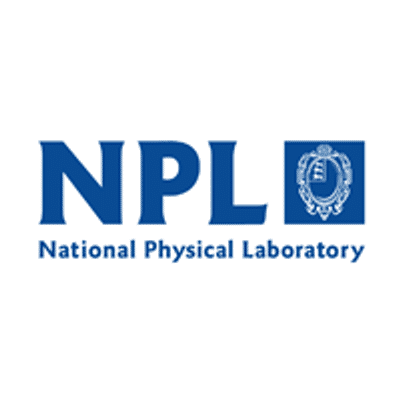
Science Apprenticeships
If you're a school leaver with a passion for biology, physics or chemistry but you’re unsure if further education is the right next step, a science apprenticeship could be the perfect alternative.
From working in labs to supporting real-world research and development, science apprenticeships open the door to exciting careers in industries like healthcare, environmental science, and more. Read on to find out more.

Can you have a career in sciences via an apprenticeship?
Oh, absolutely! Gone are the days when you had to go to university to become a scientist. Completing an apprenticeship will get you that and more.
You can join the science workforce from the age of 16 or 18, depending on your existing qualifications and whether you want to go straight from school, or as an alternative to uni. Let’s look into the different levels:
Level 2 science apprenticeships
If you’re 16, you’ll start your career with an level 2 apprenticeship. Level 2 apprenticeships are introductory and give you a flavour of what a role in marketing is like.
Level 3 science apprenticeships
Level 3 apprenticeships are the second stage on the career ladder (after level 2 apprenticeships). They’re perfect if you’ve already got 5 GCSE passes at grades 9 to 4 (A* to C) and want to develop your skills in a particular area within marketing, such as data analytics.
Level 4/5 (higher) science apprenticeships
Higher apprenticeships are perfect if you have 2 or more A-levels graded A*-C (or equivalent). They’re also a great alternative to university and once you do a higher apprenticeship, you can move onto a degree apprenticeship!
Science degree apprenticeships
There are an amazing alternative to university, so amazing we have a whole section dedicated to them. If you want to learn more about them, click below:
By the time you’ve completed your science apprenticeship, you’ll have years of work experience under your belt. And tons of skills too. These are crown jewels for recruiters and hiring managers.
Best of all, you’ll be paid a salary for the duration of your scheme.
Here’s what an analytical scientist apprentice had to say about their time with AstraZeneca.

‘I have learned lots of new skills, including prioritising important tasks, balancing work and life and communicating with people of a range of skill levels.’ Degree Apprentice, Astra Zeneca
What do you do on a science apprenticeship?
On a science apprenticeship, you combine practical work experience at a company with academic study, gaining real-world skills while working toward nationally recognised qualifications.
What you actually do depends on the specific field and employer, but here are some common activities:
Lab Work. You might help run experiments, prepare samples, analyse results, and record data under the supervision of experienced scientists.
Technical Support. Many apprentices assist in setting up and maintaining lab equipment, ensuring everything is safe, clean, and ready for use.
Research. Some apprenticeships involve supporting ongoing research, such as reviewing scientific literature, contributing to experiments, or helping develop new products and solutions.
Data Handling. You’ll often work with scientific data—organizing results, using software to track findings, or supporting research projects.
Report Writing & Documentation. Part of your role could include writing up findings, logging results accurately, and contributing to reports for internal use or regulatory purposes.
Study Days. Alongside your job, you’ll spend time (usually a day a week or in blocks) studying at a college, training provider, or university, depending on the level of the apprenticeship.
Overall, it’s a hands-on, dynamic way to start a science career, learning directly from professionals. You’ll be miles ahead of your peers that choose the traditional university route.
What qualifications do I need?
Every level of apprenticeship has a different entry requirement. We’ve listed these below:
Level 2
Some ask for two or more GCSEs graded at 9 to 4 (A* to C). However, lots of Level 2 apprenticeships don’t require GCSEs.
Level 3
Five GCSEs graded 9 to 4 (A* to C) or a Level 2 apprenticeship.
Level 4/5 (Higher)
Two A-levels or equivalent (like a BTEC or an NVQ/SVQ). Likely one in science
Level 6/7 (Degree)
Three A-levels graded at A* to C or equivalent. Likely one in science
It’s always important to check the employer’s job requirements to see what they ask for specifically.
What companies could I work for?
There is a wide range of companies that offer science apprenticeships, like AstraZeneca, Boots, GSK and the University of Oxford! As science is so broad, it’s important to look into what you actually want to do as part of your apprenticeship.
Here is what a science apprentice had to say about their time with the University of Oxford:

‘There is a huge range of opportunities within the University, and over 80% of apprentices continue to work at the University when their program has finished. The working environment is also very social and there are lots of events to get involved in.’ Laboratory Technician Apprentice, University of Oxford
How much does a science apprentice get paid?
On average, from apprentice-written reviews left on our website, a science apprentice gets paid £22,850 annually. But this will depend on your level and location. We have listed the averages below:
Remember, these are all averages. Some schemes will pay less, but many will pay much more! If you’re in London or another major city, you can expect to be paid extra to help support your living expenses.
Also, doing an apprenticeship is an amazing way to progress through your company or industry. AND a great pathway to future big earnings!
How to apply
There are loads of science apprenticeships going live every year so make sure you do your research and pick carefully. It's not about applying to every single role, it’s about feeling geniune passion for the job description and company (which needs to come across in your application!)
We have loads of application advice to support with the application process, like how to write the perfect apprenticeship CV and cover letter. And, we can support you with later stages like the interview process and assessment centres.
Apply for Science Apprenticeships
Ready to start your career? There are LOADS of science apprenticeships available right now.


























